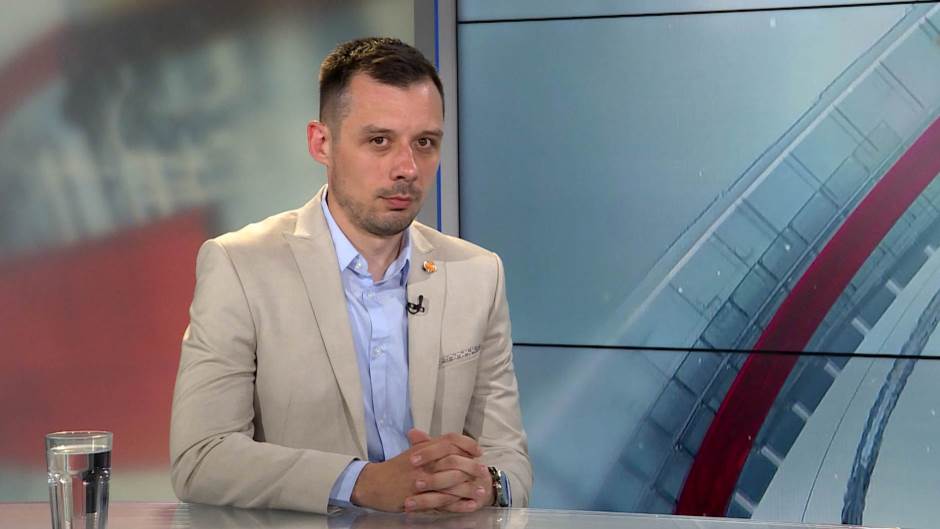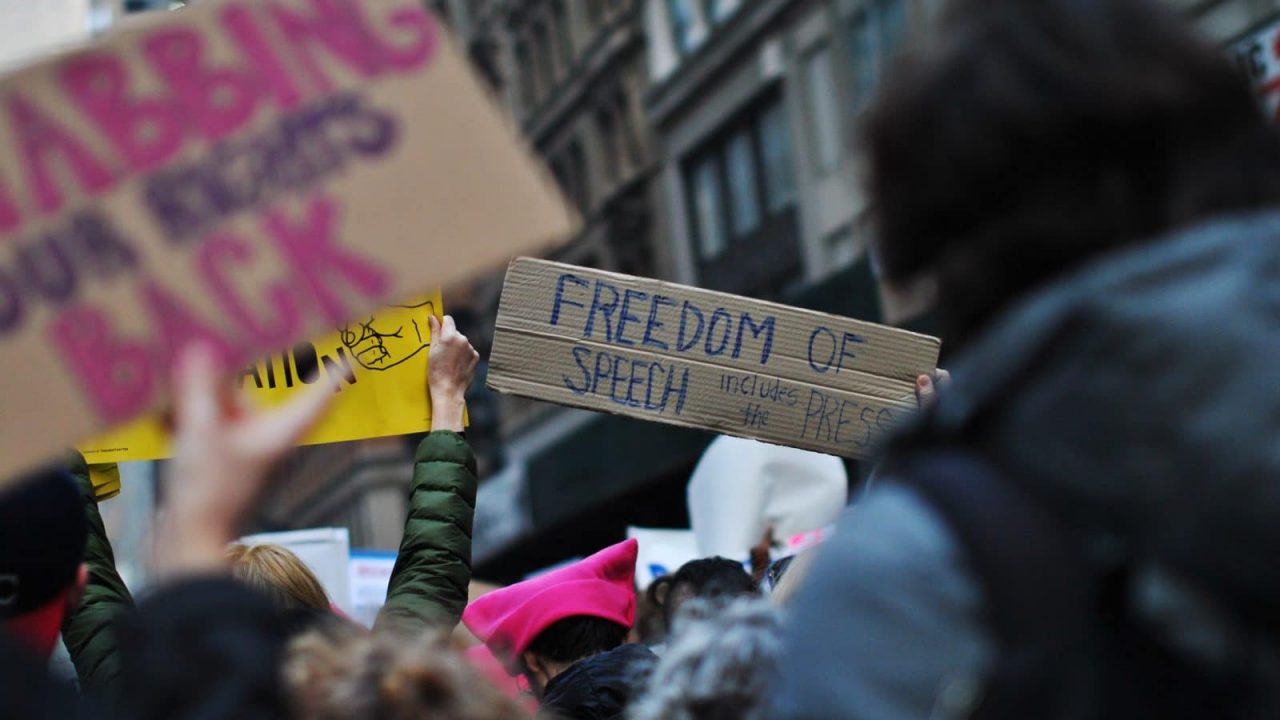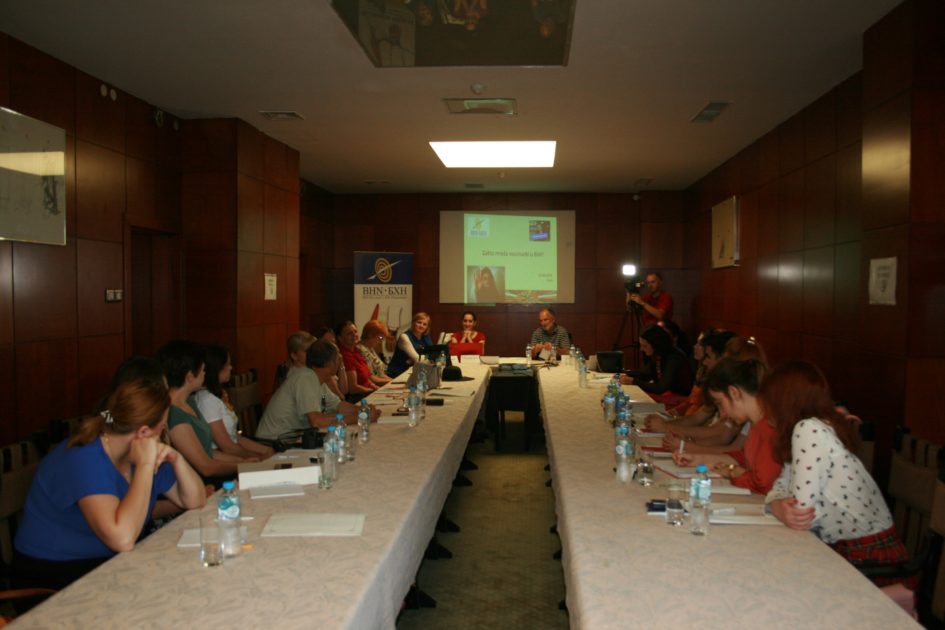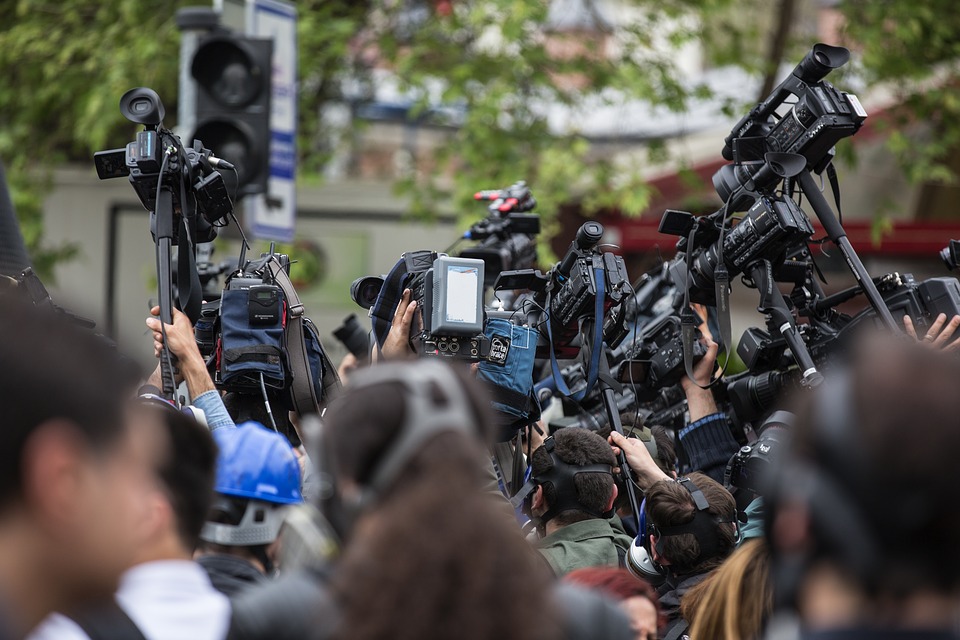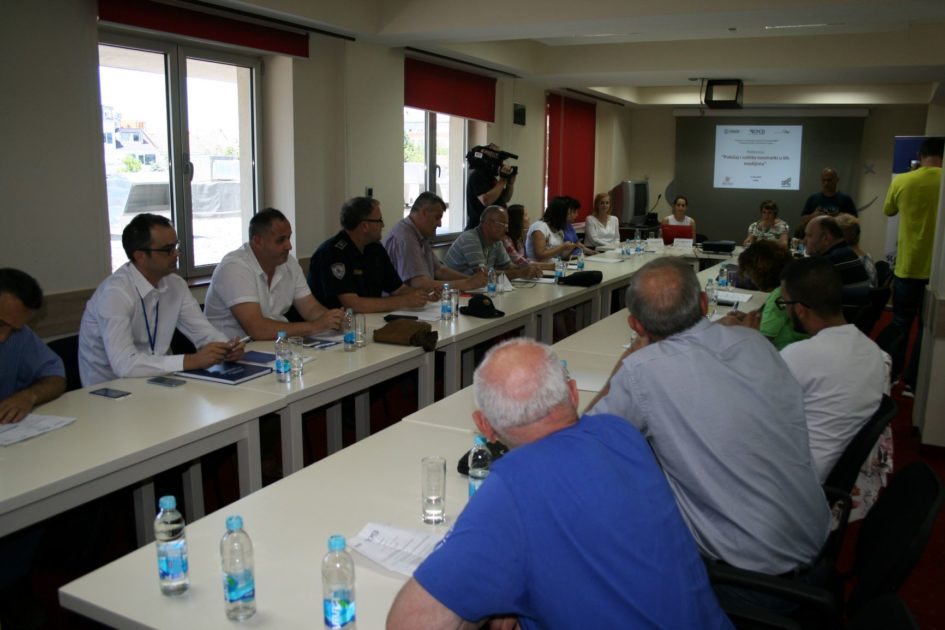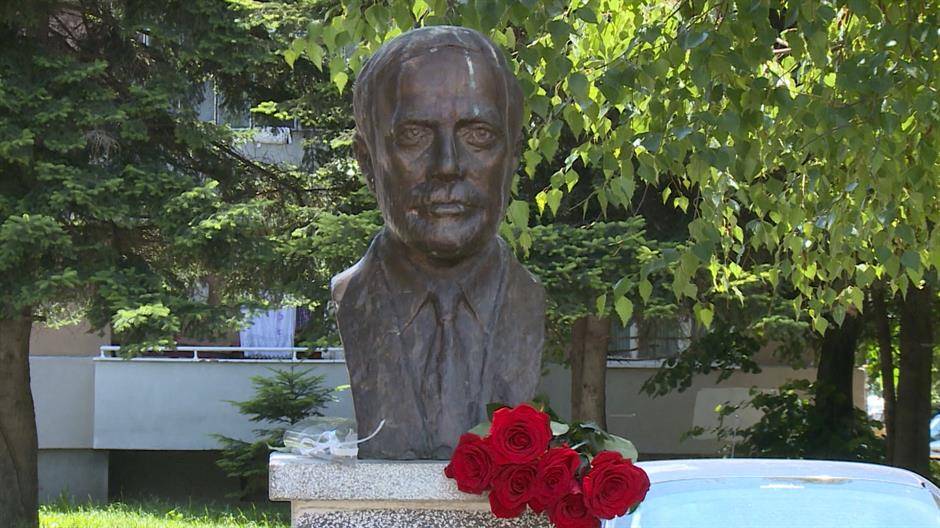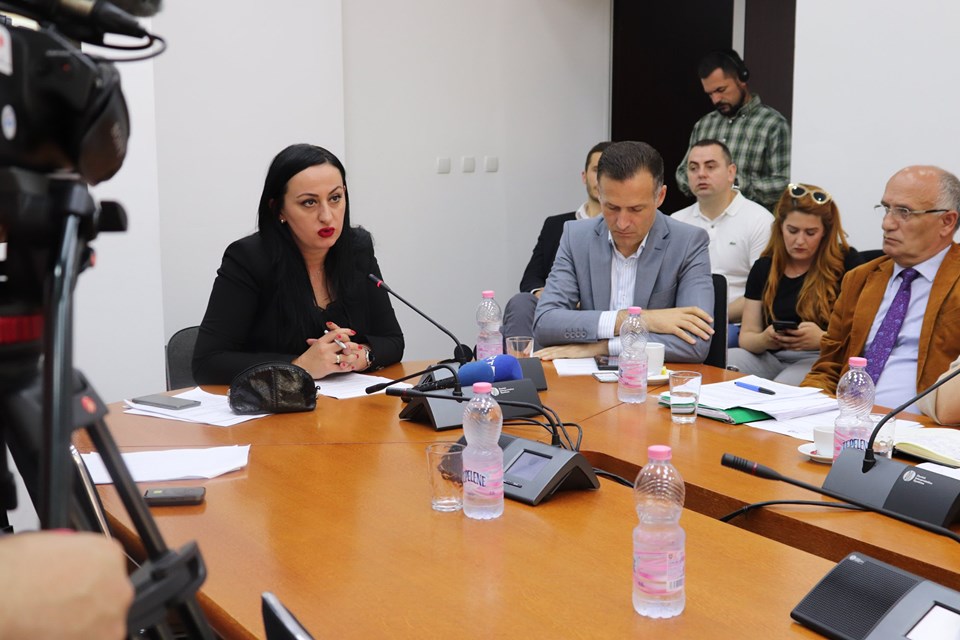BEOGRAD, 12.06.2019. – U pokušaju da diskredituje nezavisne medije u Srbiji, prorežimski portal Antidot otišao je korak dalje, te je uputio lične uvrede na račun čelnih ljudi N1.
Prvobitno je „istraživački tim“ Antidota objavio analizu izveštaja Džejmsa Hardinga, bivšeg direktora BBC News, koji je bio je angažovan od strane rukovodstva fonda KKR kako bi sačinio internu analizu uređivačke politike TV N1. Javnosti nije predočen izveštaj, ali jeste tumačenje Bogoljuba Pješćića, bivšeg vlasnika kablovskog operatera Absolut OK, koji ga je navodno video. Pješčić je široj javnosti poznat kao osoba koja je pretila Jugoslavu Ćosiću, ali i novinarima našeg lista, pritom iznoseći niz neistina.
Antidot je, ukratko, zaključio da je u svom izveštaju Harding izneo izrazito negativne zaključke o uređivačkoj politici beogradskog studija N1, kvalifikujući je kao neizbalansiranu, neobjektivnu i neprofesionalnu. Prema njihovim saznanjima, zaključeno je da ne postoji dovoljna kontrola nad uređivačkom politikom srpske ispostave te televizije, odnosno da „rukovodstvo UG na čelu sa Draganom Šolakom ostvaruje značajan uticaj na programskog direktora N1 Jugoslava Ćosića u sprovođenju medijske kampanje protiv srpskog državnog rukovodstva“, navodi se u „ekskluzivnom“ istraživanju Antidota.
United Media je reagovala na ove objave, ocenjujući da je u toku novi talas orkestrirane kampanje koja ima za cilj pokušaj diskreditacije i istrebljenje malo preostalih medija u Srbiji koji se profesionalno bave svojim poslom.
„United Media i N1 nikada ne reaguju na pisanja opskurnih veb sajtova, poput portala Antidot, koji su kreirani ciljano, da bi širili laži i spinove i koji su zbog toga registrovani na lažnim ili nepostojećim adresama, pa im je nemoguće uručiti sudske pozive. Kako su se, međutim, u novi talas kampanje i širenje neistina ponovo uključili i državni funkcioneri pronoseći ih na televizijama sa nacionalnom frekvencijom, prinuđeni smo da reagujemo, a potom i da pokrenemo sudske postupke“, navodi se u saopštenju United Media i dodaje da je u svim istraživanjima N1 lider objektivnosti među televizijama.
„Odlučnost vlasti, koja nije u stanju da prihvati kritiku i koncept nezavisnih medija, da na svaki način uguši N1, ide dotle da svojim porukama na moćnim nacionalnim medijima direktno dovodi u opasnost bezbednost novinara N1. Uprkos konstantnoj kampanju čiji je cilj disciplinovanje i eliminacija nezavisnih medija, kao i krajem devedesetih u vreme važenja tadašnjeg zakona o informisanju, N1 nema nameru da menja svoju uređivačku politiku. Ona će ostati otvorena za sve političke opcije i nezavisna, kako od vlasti, tako i od predstavnika opozicije“ ističe se u saopštenju. U vezi sa takozvanim Hardingovim izveštajem, United Media je naglasila da ništa od onoga što je objavljeno u tabloidima i na portalima nije tačno „osim ponekog imena“. Antidot je na ovo saopštenje reagovao najprizemnijim, ličnim uvredama na račun urednika N1 za Srbiju, Jugoslava Ćosića.
U ogromnoj i na momente konfuznoj analizi Antidota, jer su istraživači skakali sa teme na temu čak citirajući i tvitove, nezavisni mediji i pojedini novinari optuženi su da za račun Dragana Šolaka „i širenja njegovih firmi i SBB-a“, pišu negativne tekstove o Telekomu koji je samo kupovao male operatere. „U kampanji koja je lansirala, svoj doprinos dali su i drugi povezani mediji i paramedijske strukture poput listova Danas, nedeljnika Vreme i NIN, te portala KRIK, BIRN, Istinomer…“, navodi Antidot.
Milan Ćulibrk, glavni i odgovorni urednik NIN-a, prozvan je imenom i prezimenom kao neko ko radi protiv interesa Telekoma.
– Koliko je dobio i od koga Antidot donaciju da optužuje sve one koji su se usudili da pitaju kako kompanija, čiji su suvlasnici skoro svi građani Srbije, a većinski vlasnik je država, posredno dakle svi poreski obveznici, troši novac? I potvrdilo se da je naš strah bio opravdan jer je dug Telekoma udvostručen, a profit je smanjen za 30 odsto. Ako Telekom spadne na to da ga od kritike brani Antidot, plašim se da će ubuduće biti još gore – ističe Ćulibrk za Danas.
Slobodan Georgiev, urednik BIRN-a i novinar Vremena, kaže da ovaj izveštaj ne može drugačije da se komentariše nego kao besmislica.
– Mi smo svi udruženo zločinačko preduzeće koje radi zajedno. Ovo je u stvari udar na N1, kao što ceo Telekomov posao od prošle jeseni nije vezan za biznis, već prvenstveno da se uništi N1. Opravdano je da se Telekom širi, ali ovde je primaran politički uticaj sa ciljem da se uništi N1 ili bar da se otera Jugoslav Ćosić – naglašava Georgiev za Danas.
Urednik KRIK-a Stevan Dojčinović takođe se našao na udaru Antidota, ali to, kako kaže, nije prvi put.
– Već vodim sudski spor protiv Antidota zbog njihovih laži. Objavili su da je KRIK primio 20.000 evra u kešu od jedne strane medijske organizacije. Naravno, na sudu nisu izneli nijedan dokaz da potkrepe te tvrdnje – kaže Dojčinović. On dodaje da je Antidot napravljen da prividno deluje kao ozbiljna istraživačka ekipa, poput portala koji se zaista bave istraživanjem kriminala i korupcije u Srbiji, ali da u suštini samo napadaju opoziciju i nezavisne novinare.
– Oni imaju iste mete kao Informer i drugi provladini mediji. Ali kada se pročitaju njihovi tekstovi, vidi se da je u pitanju neozbiljna ekipa koja ne istražuje već proizvoljno iznosi zaključke koji nisu potkrepljeni dokazima – zaključuje Dojčinović.
United Media: Laži kreirane u jednom centru
– O izveštaju govore i citiraju se osobe koje nikada nisu imale uvid u njega niti znaju ko je i zbog čega naručio izveštaj i kakve su bile reakcije onih tela za koje je izveštaj urađen. Sve što je objavljeno je netačno – od sleda događaja do sadržaja izveštaja. O njemu govore ljudi koji i u ovoj prilici, kao i osvedočeno mnogo puta do sad, služe kao kreatori i repetitori laži i spinova. Tehnika je uvek identična: laži se ciljano kreiraju u jednom centru, a onda se posredstvom mreže kontrolisanih medija distribuiraju i prenose. Potom se na njih pozivaju državni funkcioneri – naglašavaju u United Media i dodaju da je Hardingov izveštaj urađen za potrebe članova borda United Grupe i UM, napisan za članove borda i „nikada nije postojala namera da bude objavljen i da postane javni dokument. Njegov sadržaj je takav da je učvrstio podršku radu N1 u sva tri centra – Beogradu, Sarajevu i Zagrebu – od strane članova borda i akcionara United Grupe, navodi se u saopštenju United Media.
Sejdinović: Tekstovi Bebinih skribomana
Novinar i bivši predsednik NDVD Nedim Sejdinović, takođe pomenut u izveštaju Antidota, smatra da je ovaj portal još jedna od promašenih investicija naprednjačkih spin majstora. „Ove tekstove Bebinih skribomana ne pročitaju ni lektori, pod uslovom da postoje na ovom portalu, za šta nema dokaza. Ekipi ne bi loše došao ni početni kurs novinarstva. Što se tiče sadržaja, u pitanju je bedan pokušaj da se jedna od najvećih kriminalnih afera prikrije gomilanjem slova“, ističe Sejdinović za Danas.


